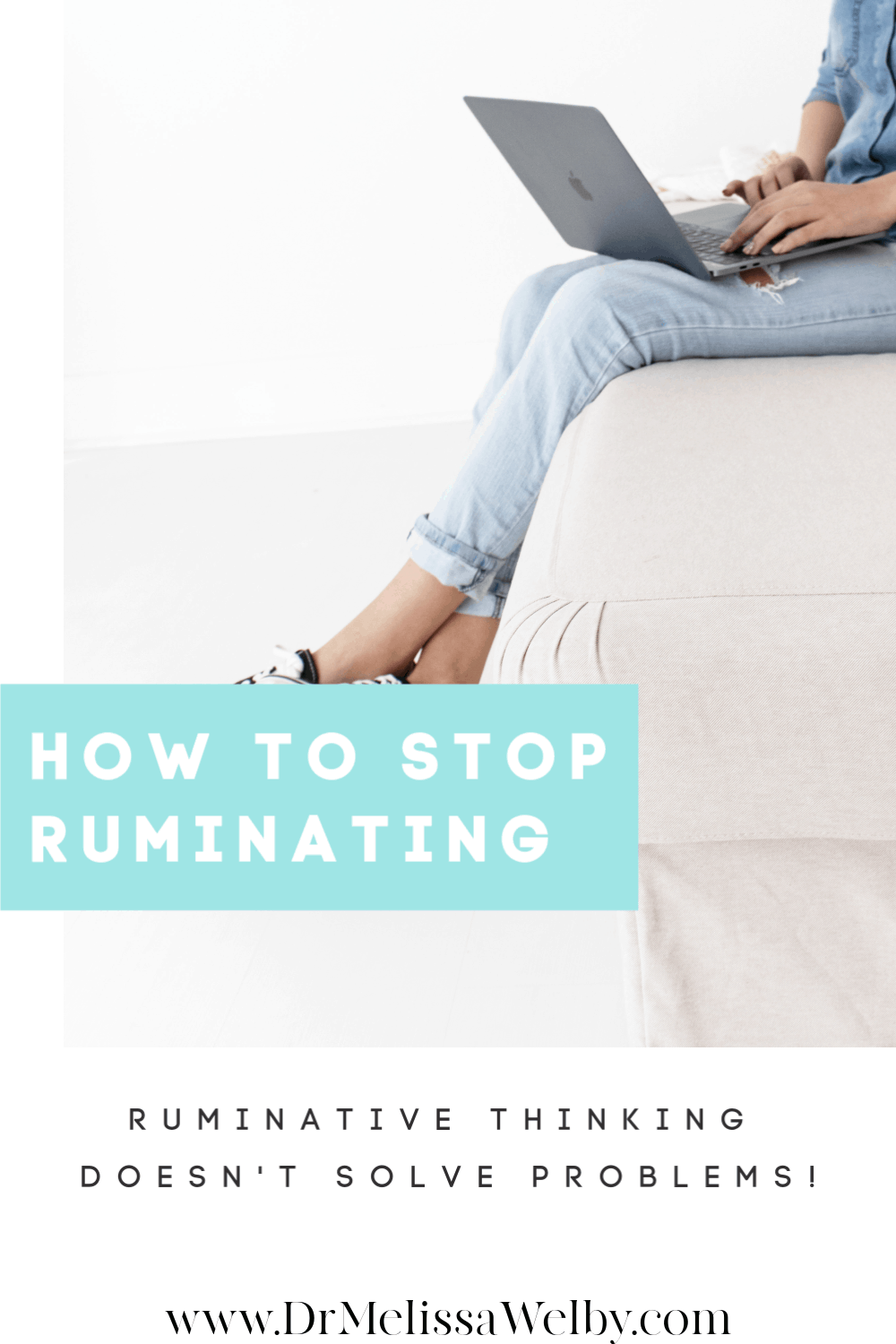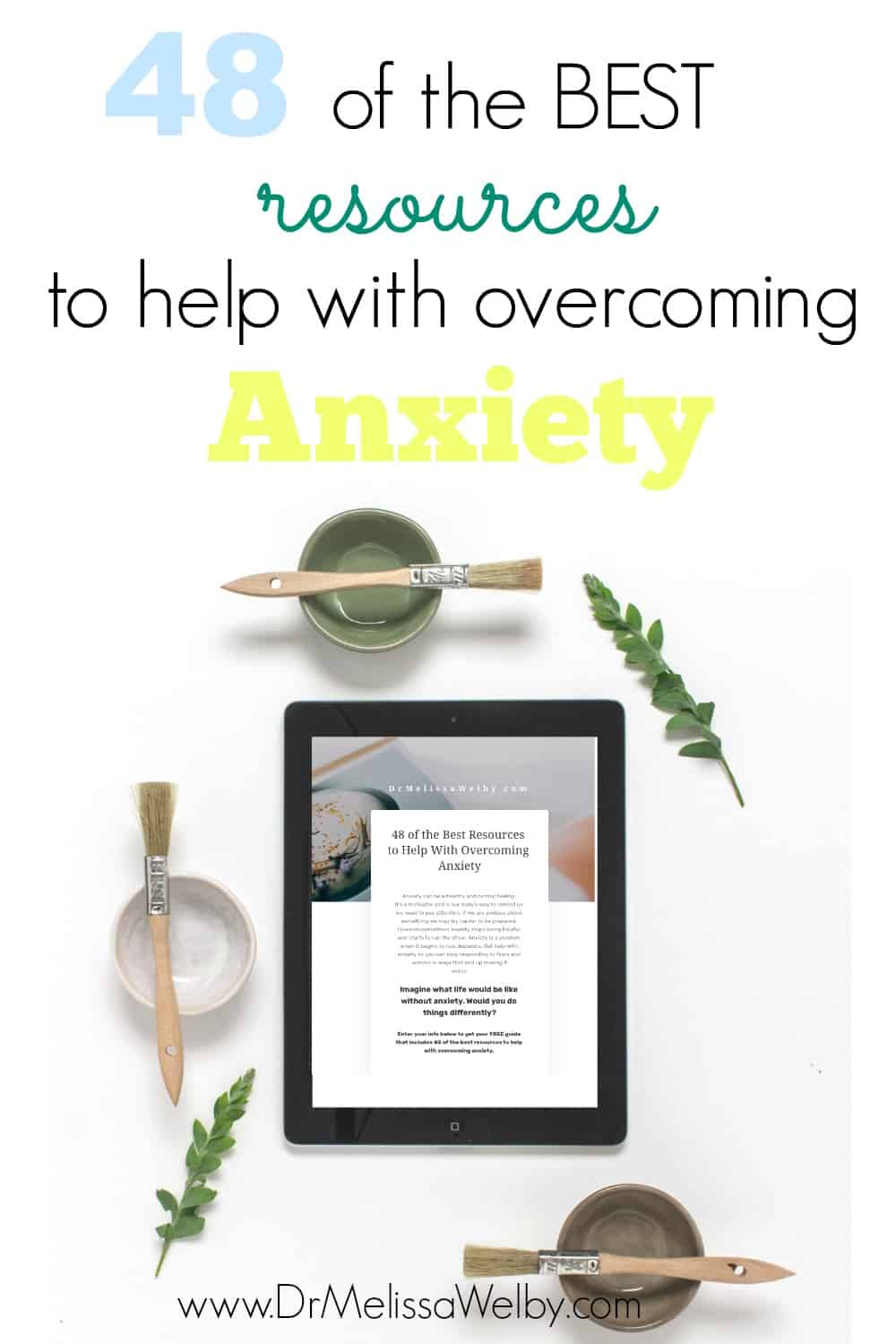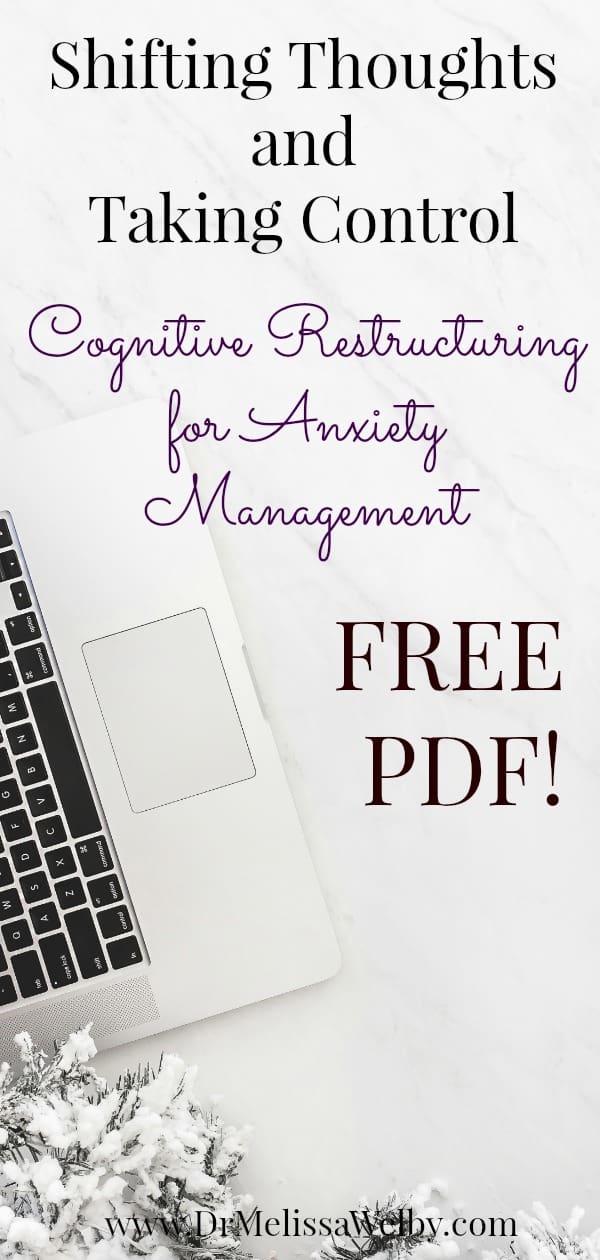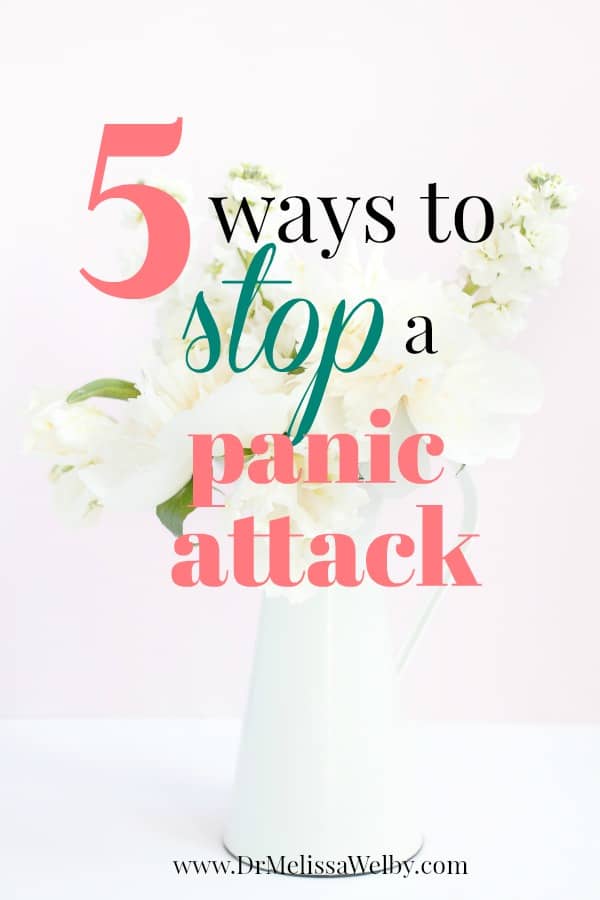Anxiety is everywhere right now, and, like our fears about COVID-19, it can feel inescapable. Everyone is talking about it. Constantly. And for a good reason: our lives have been upended, and uncertainty surrounds us. Children can sense the anxiety about coronavirus COVID-19 even if they don’t know the details. In “normal times,” having a predictable schedule can reduce anxiety. But now, for many children, schools and activities that provide structure are indefinitely on hold. So how can we talk to kids about COVID-19 and reduce their anxiety at the same time?
Category: Anxiety
How to stop ruminating: Ruminative thinking doesn’t solve problems!
Do you get a thought stuck in your head and then can’t stop thinking, analyzing, and worrying about it? Are these thoughts negative and focused on possible mistakes you have made? Do you let problems eat away at you? These are examples of ruminating thoughts. Ruminative thinking is not problem-solving that is productive, it is the tendency to repetitively think about situations that are upsetting. Figure out how to stop ruminating by first learning the rumination definition to recognize them when they are occurring.
48 of the Best Resources to Help with Overcoming Anxiety (Includes Help with Anxiety for Adults and Children!)
Anxiety is a treatable condition. Depending on the intensity, some people can get better on their own and others need therapy and/or medications to help with anxiety. Either way, recovering from anxiety is possible! There are great self-help options available to assist with the treatment of anxiety which includes websites, apps, and books on overcoming anxiety.
I compiled a list of 48 of my favorite anxiety resources that are full of information for both adults and children. Get your list here:
Adventure Awaits! How to Overcome Fear of Flying Phobia.
Recently, I took an international trip with my family that required a 16-hour plane ride. Stuck in an uncomfortable middle seat for this unpleasantly long flight I had lots of time to think and reflect in order to make the most of this extended period of nothingness. One of the topics I thought about is how life would change if I had a fear of flying phobia and the trips and family adventures I would miss out on. Fear of flying is common and many of my patients talk to me about this very thing. You can learn how to overcome fear of flying phobia. There are many adventures that await you (or business trips). Don’t let the anxiety and fear that accompany this hold you back- get treatment and put the anxiety behind you.
The Controversy Around Use Of Benzodiazepines. What Are Benzodiazepines Used For And Is It Ever Okay? (Yes)
Benzodiazepine medications have gotten a bad rap and there is much controversy in the psychiatric community about their use. Some people feel they should never be used and some feel they are highly useful. Like most areas of life, there is likely a middle ground- sometimes the use of benzodiazepines is essential and quite helpful…sometimes they are harmful and impede the progress of treatment. Let’s look at some situations where a benzodiazepine could be useful or could be potentially harmful. But before we do that, I will review some definitions and basics. What is a benzodiazepine? What are benzodiazepines used for? And then we can break down situations where they may be helpful for treatment or should be avoided.
Shifting Thoughts and Taking Control: Cognitive Restructuring for Anxiety Management
Anxiety management and recovery require recognizing anxious catastrophic thinking when it is happening (read here for more details). Once recognized, you can reduce anticipatory anxiety by changing thoughts and interrupting projections. Break down these thoughts and create a framework to analyze them with cognitive restructuring techniques.
First, let’s review some definitions.
Anticipatory anxiety is all the time wasted dreading, worrying, and panicking over a future event (a projection of an imagined outcome) where every imaginable negative outcome is thought of (catastrophizing). Cognitive restructuring techniques are tools to help break down these thoughts and analyze them using a series of questions. These questions help to identify when a cognitive distortion (a thought that isn’t accurate or based in current reality) is driving your anxiety.
Catastrophizing Anxiety
We all know what a catastrophe is but what about catastrophizing? Catastrophizing is a common occurrence in people that are feeling anxious. Catastrophizing is caused by anxiety but also serves to fuel anxious symptoms. Because of the cyclical worsening that happens with symptoms of anxiety it is important to interrupt this cycle. People stop living in the moment and spend much of their time worrying about the future.
Feeling anxious?
An anxious person can turn almost anything into a possible catastrophe.
Black and White Thinking- Don’t Fall Into the Trap!
Do you get stuck in black and white thinking and it is hard for you to see options other than all or nothing? Does rigid thinking cause you to live in the extremes where it is “my way or the highway”? Black and white thinking in relationships is generally not a benefit that brings harmony. Are you aware of the downsides of dichotomous thinking in your life? Read this post to learn how to stop black and white thinking.
Dichotomous thinking:
Black and white thinking is dichotomous. Dichotomous means something is divided into 2 distinct and opposing parts.
3 Types of Paranoia: What does paranoia mean?
Recently someone asked me a question regarding the relationship between anxiety and paranoia. They reported feeling paranoid and were wondering if treatment for anxiety would help them feel better. Is paranoia a symptom of anxiety? What does paranoia mean? There aren’t actually 3 types of paranoia and being paranoid means very different things to people with anxiety, OCD, or psychosis.
If you know someone who is paranoid or are curious about the best ways to provide support, download this free PDF guide:
5 Ways to Stop a Panic Attack
Panic attacks can be terrifying and life-altering if they are not controlled! Often they are so scary that every detail of someone’s first attack becomes etched permanently in their mind. Are you wondering how to stop a panic attack? Let me tell you what to do during a panic attack so that you can learn how to control panic attacks instead of them controlling you.
Panic attacks cause a sudden intense fear when no danger is present or there is no identifiable trigger. This fear triggers your bodies emergency system to be activated causing the physical fight or flight reactions. Your body reacts as if you were under attack and fighting for your life.


















